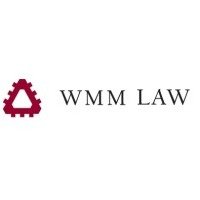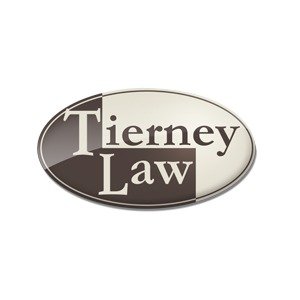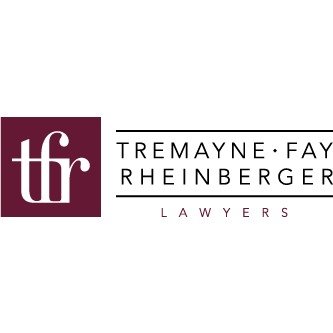Best Private Client Lawyers in Hobart
Share your needs with us, get contacted by law firms.
Free. Takes 2 min.
List of the best lawyers in Hobart, Australia
About Private Client Law in Hobart, Australia
Private client law in Hobart, Tasmania, focuses on providing legal services to individuals and families rather than businesses. This area covers matters such as estate planning, wills, trusts, asset protection, enduring powers of attorney, guardianship, probate, and estate administration. The unique laws and regulations in Tasmania influence how personal affairs are handled, making it important to have local legal guidance. Whether you are planning for the future or managing the affairs of a loved one, private client lawyers in Hobart can help you understand your options and ensure your wishes are respected according to local law.
Why You May Need a Lawyer
There are several situations where seeking the help of a private client lawyer in Hobart is advisable. Common reasons include:
- Drafting or updating a will to reflect your wishes
- Establishing trusts for family members or charitable purposes
- Appointing an enduring power of attorney or a guardian to manage personal or financial affairs in the event of incapacity
- Dealing with the legal process when a loved one dies, including probate and estate administration
- Resolving disputes over wills, estates, or family provision claims
- Protecting the interests of vulnerable family members such as minors or those with disabilities
- Minimising tax and managing assets efficiently through tailored estate planning
Legal issues in private client matters can be complex and highly personal. Engaging a lawyer ensures your interests are protected and that legal requirements are properly met.
Local Laws Overview
Tasmania has its own set of laws and procedures with respect to private client matters. Key legislation includes the Wills Act 2008, the Administration and Probate Act 1935, and the Guardianship and Administration Act 1995. Some important points to note are:
- For a will to be valid in Tasmania, it must generally be in writing, signed by the testator, and witnessed by two people.
- If a person dies without a valid will (intestate), the distribution of their estate is determined by Tasmanian law, which may not reflect their wishes.
- Probate is the legal process to confirm a will is valid and to authorise the executor to administer the estate. The Supreme Court of Tasmania manages this process locally.
- An enduring power of attorney allows you to choose who will make decisions for you if you lose the capacity to do so. Different forms and criteria apply for financial or personal decisions.
- Guardianship laws protect the interests of people who cannot make their own decisions due to disability or illness. Responsibility may be decided by the Guardianship and Administration Board.
- There are specific rules for contesting a will, often under family provision laws intended to ensure fairness for dependants or those who may have been left out of a will.
Frequently Asked Questions
What is the role of a private client lawyer in Hobart?
A private client lawyer provides advice, drafts legal documents, and represents individuals in matters such as estate planning, will drafting, probate, trusts, and powers of attorney. They ensure that your personal wishes are legally documented and respected.
Do I need a lawyer to make a valid will in Hobart?
While it is possible to create a will without a lawyer, errors or omissions can make the will invalid or lead to disputes. Using a lawyer ensures your will meets legal standards and accurately reflects your intentions.
What happens if someone dies without a will in Tasmania?
If there is no valid will, the estate is distributed according to the rules of intestacy in Tasmania, which set out who inherits based on family relationships. This may not align with what the deceased person wanted.
How is probate handled in Hobart?
Probate is managed by the Supreme Court of Tasmania. The appointed executor applies for probate and, once granted, can legally distribute the estate to beneficiaries according to the will.
What is an enduring power of attorney?
An enduring power of attorney is a legal document that allows you to appoint a trusted person to manage your financial and/or personal matters if you become unable to do so yourself.
Can I challenge a will in Hobart?
Yes, you may be able to challenge a will under certain circumstances, such as if you believe you have not been adequately provided for or if there are concerns about the will's validity. There are strict time limits for making such claims.
How does a trust work in Tasmania?
A trust involves appointing a trustee to manage assets on behalf of beneficiaries. Trusts can be used for asset protection, tax planning, or to provide for family members, and must comply with Tasmanian law.
How are guardians appointed for adults who lack capacity?
The Guardianship and Administration Board of Tasmania can appoint a guardian or administrator for adults who are unable to make personal or financial decisions due to incapacity.
What taxes apply to estates in Hobart?
Tasmania does not have estate or inheritance tax, but other taxes such as capital gains tax or income tax might apply depending on the assets and activities of the estate.
How often should I update my will or estate plan?
It is wise to review your will and estate plan after major life events such as marriage, divorce, the birth of children, or significant changes in your financial circumstances, or at least every few years.
Additional Resources
For more information or support regarding private client matters in Hobart, consider the following resources:
- Supreme Court of Tasmania - Probate Registry
- Tasmanian Department of Justice
- Law Society of Tasmania
- Guardianship and Administration Board of Tasmania
- Legal Aid Commission of Tasmania
- Public Trustee of Tasmania
- Community legal centres operating in Hobart
Next Steps
If you need legal assistance with private client matters in Hobart:
- Gather relevant documents such as existing wills, property titles, identification, and correspondence
- Consider your goals and any concerns you have about your personal affairs or those of a loved one
- Research and contact experienced private client lawyers in Hobart who understand local law
- Prepare questions to ask during your initial consultation, and discuss fees, timeframes, and what steps may be involved
- Follow legal advice and keep thorough records of all decisions, documents, and communications
Taking these steps will help ensure your legal affairs are managed smoothly and with respect for your wishes and best interests.
Lawzana helps you find the best lawyers and law firms in Hobart through a curated and pre-screened list of qualified legal professionals. Our platform offers rankings and detailed profiles of attorneys and law firms, allowing you to compare based on practice areas, including Private Client, experience, and client feedback.
Each profile includes a description of the firm's areas of practice, client reviews, team members and partners, year of establishment, spoken languages, office locations, contact information, social media presence, and any published articles or resources. Most firms on our platform speak English and are experienced in both local and international legal matters.
Get a quote from top-rated law firms in Hobart, Australia — quickly, securely, and without unnecessary hassle.
Disclaimer:
The information provided on this page is for general informational purposes only and does not constitute legal advice. While we strive to ensure the accuracy and relevance of the content, legal information may change over time, and interpretations of the law can vary. You should always consult with a qualified legal professional for advice specific to your situation.
We disclaim all liability for actions taken or not taken based on the content of this page. If you believe any information is incorrect or outdated, please contact us, and we will review and update it where appropriate.
Browse private client law firms by service in Hobart, Australia
Hobart, Australia Attorneys in related practice areas.
















